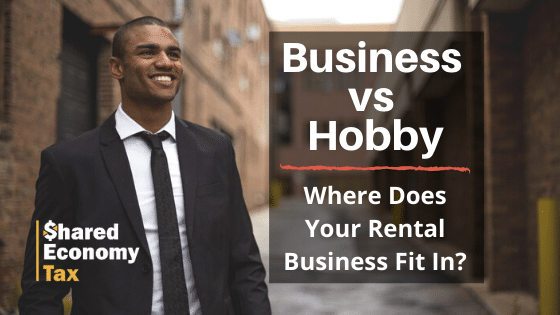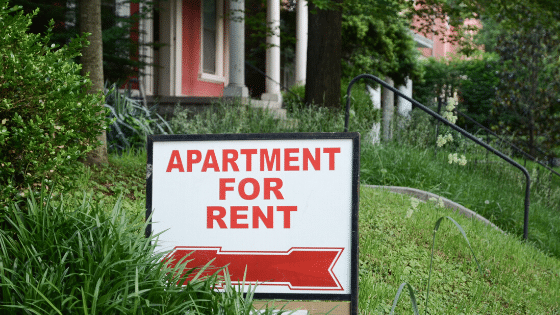How Does Rental Income Affect Taxes?
If you plan to rent out an extra room or a second home on Airbnb, you need to understand how it affects your tax profile. Depending on how much your business earns, Uncle Sam may classify your rental income as taxable or hobby-related. Each classification has a distinct impact on your taxes, so determining where your business qualifies is an important part of effective tax preparation. Understanding the differences between hobby vs business can help you avoid costly penalties and fines.
Here are the rules to help you figure out if your rental activity is a business or hobby.
Hobby vs Business: Key Considerations
There are nine factors that the IRS considers in determining whether your rental activity is a business:
- Manage your rentals in a businesslike manner, with complete and accurate books and records.
- Owners must put in the time and effort to make the business profitable.
- You depend on your rental income to earn a living.
- When you incur losses, they are due to circumstances that are beyond your control.
- You adjust your rental methods in order to improve profitability.
- Owners know how to conduct their rental businesses successfully.
- You were successful in turning a profit in similar activities in the past.
- The rental business was profitable in previous years.
- You expect to turn a profit from the appreciation of your property or other assets used for rental activities.
Hobby or Business?
The general rule is that if you did not earn a profit in at least three of the prior five years, the IRS will consider your business as a hobby. IRC Section 183 (Activities Not Engaged in for Profit) is sometimes referred to as the “hobby loss rule”. The rule limits deductions that can be claimed if the rental is not a for-profit enterprise. If the IRS labels your rental business as a hobby, you cant claim losses to lower your tax bill.
This allows the IRS to adjust your prior tax returns if you claimed deductions. They can even charge you for back-taxes to compensate for disallowing past deductions. These kinds of changes often result in big tax adjustments, interest, and penalties.
If the IRS applies the hobby rule, you can still claim certain personal expenses. Some examples include home mortgage deductions, advertising, insurance premiums, depreciation, and wages. However, you must have earned more from your hobby than the total amount of all of these expenses in order to claim them (you cannot claim a loss).
McKinney v. Commissioner
However, don’t be quick to rely on the hobby loss rule alone as there are exceptions. A rental activity with multiple years of losses can still qualify as a business.
Your rental activity could qualify as a business, even if you don’t turn a profit for years. Many rentals have negative cash flows, but they still earn some profits at some point. That’s why it could be classified as a business even if you report consistent losses.
One case highlights this example, McKinney v. Commissioner. In the case, an Oklahoma couple owned a vacation condo in Hawaii. Tax courts said they were running a profit-motivated business even though they reported substantial losses. The couple only rented their property part-time and they lost money on their rentals for 11 of 13 years. Despite the losses, the tax court ruled against the couple.
The McKinneys earned a profit on their rentals for the two preceding years, and they improved the property in order to charge higher rents. The couple spent significantly on remodeling the property and increased their gross rental income as a result. This critical case highlights the importance of gross earnings over net income. The IRS gives issues like this significantly more weight when classifying a business.
If your rental consistently generates losses for years, it’s a red flag for the IRS. It could trigger an audit or worse. That’s why it’s so important to properly classify your rental income.
Business vs Hobby: Where Does Your Rental Income Qualify?
To take deductions confidently, you need to be confident that you’re able to demonstrate to the IRS that your Airbnb is really a business and there’s no question about your profit motivation. Keeping proper records and receipts can help you to successfully prove your profit motives to the IRS in the event of an audit.
Make sure to maintain complete financial records and open a separate bank account for your rental activity. You should also keep records of your online listing on Airbnb and document the dates your property was available for rent as well as the dates that it was actually rented out (which is available as a transaction history export from Airbnb).
In addition, keep track of any improvements that you make to your property separately and the associated expenses incurred. These should be recorded separately for depreciation purposes.
Finally, obtaining a business license from your city or county will add substance to support your business’ paper trail. The IRS can disallow deductions on the grounds that there was no business license. It’s is a weak argument because it ignores profit motivation. However, it highlights how licenses can protect renters from the hobby designation.
Obtaining a license should be done with a thorough understanding of local ordinances. Newly issued short-term rental permits can trigger city tax offices. This practice is particularly prevalent in San Diego, Los Angeles, and San Francisco. In these cities, tax authorities are on the lookout for past violations and un-taxed revenues.
Does Rental Income Affect My Taxes?
Ultimately, there’s no easy answer to this question. It all depends on your tax situation and rental income. You’ll need to speak with a professional tax advisor to get an accurate take on your tax situation. If you’re in the market for some tax help, you should talk to a certified pro from Shared Economy Tax. We can help you get the best deal possible on your tax bill.
Get started today with a free one-on-one strategy session with one of our friendly experts. Plus, get more helpful tax tips from our free newsletter.

